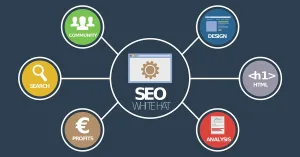The Rules of Thumb blog from MoneyThumb makes it our business to inform our readers on all things concerning the lending industry. Many of the users of our PDF financial file converters are lenders of one type or another, many of them private lenders offering small business loans. So many borrowers are small business owners and a big majority of those small business owners are women. So today we will examine closely the state of small business lending when it comes to women entrepreneurs.
To help us in our study, we'd like to refer to an article from one of our favorite lenders, Fundera. Fundera creates a quarterly report concerning the lending industry and in this article, they concentrate on small business lending when it comes to women entrepreneurs. There are some fascinating facts in that article, answering pertinent questions such as the following: When compared to their male counterparts, how eligible are female entrepreneurs for business financing? What sorts of loans do they get, for how much money, and at what rates? Are there substantive differences in categories like credit score, annual revenue, and industry? In short, do women entrepreneurs have a harder time financing their businesses through business loans for women specifically?
For women entrepreneurs, there were some unfortunate revelations in the Fundera report, such as:
- Female entrepreneurs ask for roughly $35,000 less in business financing than men.
- Only 1 in 4 applicants for business financing through Fundera were women, and a similar percentage of women end up receiving financing relative to men.
- However, women ask for $35,000 less on average than men do, which is consistent with trends underscored in the broader economic literature highlighted below that women employees tend to ask for smaller raises, and at a lower frequency, than their male counterparts.
- Women get approved for debt funding at a lower rate than men, but even more startlingly, women are likely to pay higher rates and receive less debt funding than male counterparts.
- While women are less likely to receive business credit than men, the difference is marginal: roughly 32% of women business owners are approved for credit, versus 35% for male entrepreneurs.
- That difference notwithstanding, of the women who do secure debt financing, they are more likely to receive a shorter-term loan with less capital and significantly higher interest rates.
- This dovetails with the tendency in venture capital to invest significantly more in male-owned than female-owned businesses: women have received only 7% of venture capital raised in the U.S., and only 10% of venture capital worldwide between 2010 and 2015.
- Women entrepreneurs get offered smaller loans across every product, from the same groups of online lenders, with no exception, and pay significantly higher interest rates than men do
- While SBA talking points and a study often cited by the agency from the Urban Institute claim that SBA loans are three to five times more likely to go to women or minority-owned businesses than conventional business loans are, our data paints a different picture of equality for SBA financing. Even among SBA loans, women receive 2.5 times less money than men do: on average, women get $59,857 while men receive $156,279.
- Whatever the cause, this demonstrates a sizable disadvantage women face in growing their businesses with debt financing. SBA loans, in particular, are meant to encourage even new and small businesses. This data falls in line with the Urban Institute’s research revealing that women-owned businesses only account for 4.4% of all dollars lent to small businesses each year and Forbes’ research highlighting that they generally receive just 80% of the capital when compared to men.
- Lower financing amounts likely lead to slower growth for women-owned businesses and, ultimately, a smaller impact on the national economy.
- On average, women pay 6.4 percentage points and 5.4 percentage points higher rates for personal loans and short-term loans, respectively, than male entrepreneurs do.
- Women entrepreneurs have lower credit scores than men, with a 15-point difference between their averages.
- A credit score is the single greatest driver of a loan’s APR, as well as a major factor in financing eligibility, so it is sad but unsurprising that women-owned businesses qualify for smaller, more expensive business loans.
- The cause of lower credit scores among women entrepreneurs cannot be determined by our data alone, but it is likely related in some ways to the gender wage gap, which itself probably contributes to disproportionate debt-to-income ratios and credit utilization between genders.
- On average, women-owned businesses make 30% less annual revenue.
- Annual revenue is another major factor in credit eligibility, although ironically, access to credit is also a factor that can determine a business’s annual revenue: by measuring its ability to grow.
- Women-owned businesses, with poorer access to credit, may be stuck in a cycle of more difficult growth.
- Roughly 60% of female entrepreneurs who applied for a loan through Fundera reported less than $250,000 in annual revenue.
The Fundera report contains a whole lot more information about the lending industry when it comes to small businesses owned by women. The MoneyThumb team suggests you read the full report by following this link. In the conclusion of the study, Fundera apotheosizes that the cause of these huge discrepancies in how women entrepreneurs are treated by lenders in contrast with men business owners to be influenced by the gender pay gap, cultural perceptions of gender and entrepreneurship, and more.
Equal opportunity for women has made great strides over the last 50 years, but we still have a long way to go. With several females on the upcoming ticket in the US presidential race, maybe we will someday see a big shift in how women are treated, especially women entrepreneurs seeking small business loans.





















Add comment